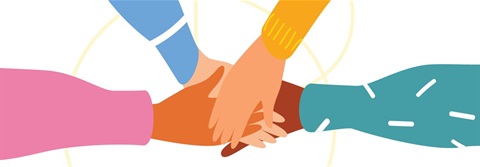COVID-19 and Family Violence
Published on 19 August 2021

For many people, including victim-survivors of family violence, being at home is not always a safe place.
Family violence incidents are likely to increase as a result of the COVID-19 pandemic. For many people, public health and community containment measures introduced to reduce the spread of COVID-19 such as social distancing and self-isolation, as well as increased financial insecurity and reduced ability to leave relationships, may increase their risk of family violence.
Staying Safe
A safety plan is a personalised, practical plan that includes ways to remain safe while in a relationship, planning to leave, or after you leave.
Public health measures that are in place to contain COVID-19 might require you and your family to stay home where possible and have limited social contact. Having a safety plan can help you to protect yourself during this difficult time. The best way to make a safety plan is in consultation with a support service, in particular a specialist family violence service.
Things to consider for increasing safety during a family violence crisis:
- If you sense trouble or find yourself in an argument, move to a 'lower risk space': rooms with two exits and fewer things that can be used as weapons, where you can be seen or heard from the outside.
- Kitchens, bathrooms and garages are more dangerous than living rooms, dining rooms or bedrooms. Learn - and teach your children - to get positioned 'between trouble and the door'.
- Teach the children how to call police 000 and to know their home address.
- Where possible have a charged phone and a back-up plan in case you are separated from your phone, for example, have a hidden second phone.
- Create signals and/or code words that will let your children know to get out and go to a pre-arranged place of safety.
- Create signals that will let your neighbours/family members know to create a supportive or defusing presence or call 000. For example, a turned-on porch light, drawn shade.
- Have an escape plan and back-up. Rehearse getting out in the dark and with the children. Keep spare keys and important documents where you can get to them readily. Have some money stashed away for emergencies.
Family Violence Services
While people are encouraged to stay at home, it is important that you know you can reach out for support. Specialist family violence services are open and available for support and advice for anyone experiencing family violence who is worried about how potential self-isolation or quarantine will impact on their safety and wellbeing.